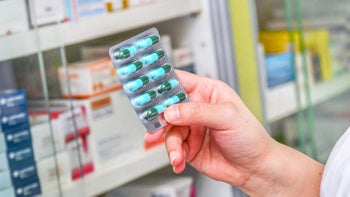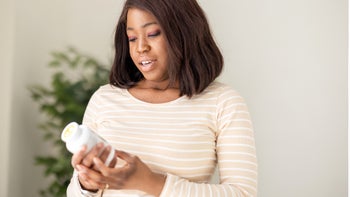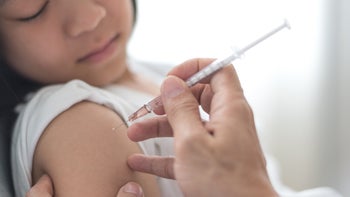
What Is It Like to Take CoQ10 to Boost Fertility?
Key takeaways:
Coenzyme Q10 (CoQ10) is a naturally occurring antioxidant in the body.
It’s essential for protecting cells from damage and maintaining overall cellular health.
Some people take CoQ10 supplements to enhance fertility and try to improve egg quality.

When trying to boost fertility, many people take a holistic approach. That can include lifestyle changes, dietary adjustments, and over-the-counter supplements.
One supplement gaining attention for its potential to boost fertility is coenzyme Q10 (CoQ10). It is a naturally occurring antioxidant found in the body. It’s known for its role in increasing energy production and protecting cells.
As we age, our CoQ10 levels may decline. Some people take CoQ10 as a supplement because of their age, health status, and specific health goals. Some people take CoQ10 supplements to support heart health, boost energy, and improve fertility.
Search and compare options
It’s best to consult with your care team to determine whether CoQ10 supplements are right for you. Some research supports taking CoQ10 for fertility support.
Three women who have taken it to do just that compare it to a daily vitamin. Here, they explain the benefits of taking CoQ10 to boost fertility.
Doing something good for your health daily
Suzie Devine, an entrepreneur in Philadelphia and a former in vitro fertilization (IVF) nurse, turned to CoQ10 after facing infertility challenges.

She was diagnosed with endometriosis — a condition in which tissue similar to the lining inside the uterus starts to grow outside the uterus. She says she knew her condition could affect uterine implantation.
“I had a few miscarriages,” says Suzie, 35. “So I was very focused on improving egg quality.”
Suzie went on to start a health product company that specializes in fertility kits for women.
“I had no idea that I would go through my own infertility experience,” she says. As a nurse, she remembers studying complementary therapies to prescription medications. “One of those treatments or alternatives would be using coenzyme Q10,” she says.
What is CoQ10, and do I need it as a supplement? It’s best to consult with a healthcare professional to determine whether CoQ10 supplementation is right for you.
Can acupuncture improve fertility? There’s growing evidence that it can.
How much do in vitro fertilization medications cost? One cycle can range from $15,000 to $30,000, and insurance often doesn’t cover these costs.
When she was first trying to conceive, she started taking 200 mg daily of CoQ10 for 60 days. Once she was going through IVF, she increased her daily intake to 600 mg before her second IVF retrieval.
She says she thinks CoQ10 played a role in helping her conceive her two sons, Pierce and Austin.
CoQ10 is “something that you can do for yourself every day that’s good for your health,” she says. “It also has minimal side effects, which is awesome.”
Knowledge is power with your health
Kristyn Hodgdon, a co-founder of a platform dedicated to holistic women’s health, also advocates for CoQ10.
She knows firsthand the challenges of infertility. She had twins using IVF almost 6 years ago.
“When I wanted to go back and have a third baby, I had embryos remaining from their cycle, and none of them worked,” says Kristyn, now 35, of Island Park, New York.

She tried practices such as acupuncture to improve her fertility and worked with a nutritionist. She also added prenatal supplements and CoQ10 to her daily routine.
A year after starting the CoQ10 supplements, she did a fresh egg retrieval and had 16 healthy embryos. “Now I’m 21 weeks pregnant, so there is a big success story there,” she says.
“CoQ10 is one of those buzzy supplements, but it’s one that actually has a lot of research behind it,” she says. “It was like taking all my other vitamins.”
Her husband also joined in taking CoQ10 to support sperm health. Kristyn stresses the need to be consistent about taking supplements and to be informed.
“So many women are blindsided by infertility diagnoses because we’re not taught enough about our bodies,” she says.
Once she was pregnant, Kristyn stopped taking CoQ10 because she had achieved her egg-quality goals. As a fertility advocate, she says she’s dedicated to sharing her experiences.
“Knowledge is power when it comes to your health,” she says.
Determine what works best for you
Elizabeth King, a 48-year-old fertility coach in Irvine, California, has long championed women’s wellness. When she was 36, she froze her eggs, recognizing the importance of preserving her fertility options.

“When I was about 38, I was still single and realizing, ‘Oh my gosh, I actually do want to have kids,’ and hoping that everything would work when I did want to,” she says.
That was when her journey with CoQ10 began.
“I recognized that because I was older that I needed to do all the things that I could to help my egg quality,” she says.
Elizabeth knew she wanted to use her own eggs to get pregnant, so she read a lot about CoQ10 to aid in fertility. She incorporated CoQ10 alongside prenatal vitamins and vitamin D, taking 600 mg of CoQ10 daily.
“I got pregnant the first time at 40,” she says. “And then I was religious on all my supplements until I had my last [child] when I was almost 44.”
Her experience shaped her career. It drove her to focus on fertility in her wellness practice.
“I switched my practice from general life coaching to fertility because I recognize that this is such a huge experience that people don’t prepare you for,” she says.
What does the doctor say?

Patricia Pinto-Garcia, MD, MPH
Senior Medical Editor
Going through assisted reproductive treatments, like intrauterine insemination (IUI) or IVF, isn’t easy. And it’s natural to want to do anything you can to ensure a healthy pregnancy and a safe delivery. Since so much of the process is outside your control, it’s also natural to want to take control when you can. Fertility supplements can fill both of those needs.
Unfortunately, the science behind some of these supplements is often murky. CoQ10 has more clear research in its favor, especially when it comes to improving egg quality. There’s evidence that CoQ10 improves egg quality, which can increase your chances of a successful IVF cycle. Healthier eggs are more likely to fertilize and form into a healthy embryo. Healthy embryos are more likely to implant and grow into a fetus.
But researchers point out that studies on CoQ10 include small numbers of people and use varying doses of CoQ10. That means it’s not clear whether CoQ10 will work for everyone. Keep in mind that not everyone has trouble getting pregnant for the same reasons. It’s possible that CoQ10 helps fertility in some situations but not others.
It’s also not clear how much CoQ10 people should take to achieve the results described in these studies. And the studies don’t always measure successful outcomes in the same way. Some studies measure how many eggs are retrieved, while others look at whether people actually become pregnant. Most studies don’t look at whether people stayed pregnant and delivered a baby.
Still, you’ll find many fertility experts, including reproductive endocrinologists, recommend trying CoQ10. CoQ10 is a generally safe supplement and hasn’t been tied to any major side effects. It’s widely available and relatively inexpensive. So it falls into the general category of “it can’t hurt to try it.”
CoQ10 may give your other fertility treatments a boost or it may have no effect at all.
Talk with your fertility team if it doesn’t seem to be helping or you’re experiencing side effects. You might be able to stop taking it. And when you’re going through IUI or IVF, one less medication to worry about can be a big win.
Why trust our experts?




























